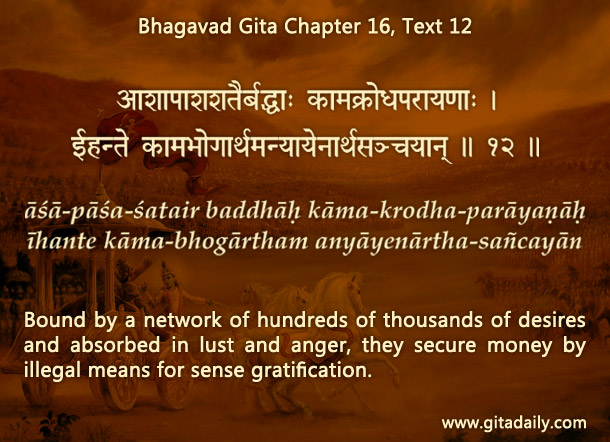“Are addicts forced to indulge in their addiction? Have they lost their free will?” Such questions often confront addicts and those associated with them, especially when addicts relapse even against their better intentions.
Undoubtedly, addicts are subjected to unbearable urges. But their vulnerability to such urges doesn’t mean that they no longer have free will. After all, those urges don’t torment them with the same severity twenty-four hours a day. When the urge becomes irresistible, they may feel that they have no freedom. But when the urge subsides, they are much freer. Thus, their free will is not lost in its entirety, but appears lost in intermittent phases. It may also be restricted in range. That is, alcohol addicts can choose what to drink – whisky or brandy – not whether to drink or not. Thus, addiction is a constriction of free will, not its deprivation.
The Bhagavad-gita (16.12) points to such constriction of free will when it states that desires become like shackles for those wedded to a materialistic worldview. When we see addiction as constriction of free will, we may realize that we all are prone to addictive behavioral patterns. In fact, what spiritual parlance calls attachment can be considered addiction’s preliminary stage.
Bhakti-yoga is the spiritual therapy that helps expand the scope of our free will. When we use whatever free will we have to practice bhakti and connect with Krishna, that connection provides us satisfaction and purification. Thus, we get the impetus and the intelligence to resist entangling desires. The more we use our free will to serve Krishna, the more we become enlightened and empowered to break free from our attachments.
Thus freed, we invest our free will judiciously for serving Krishna, making constructive contributions in this world and marching towards liberation beyond this world.
To know more about this verse, please click on the image
Explanation of article:
Podcast:


Hare krishna Prabhu ! Kudos to your effort, really like your website